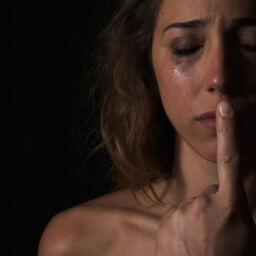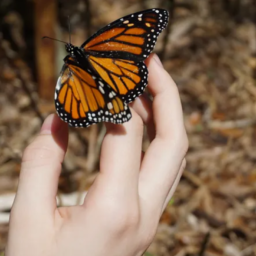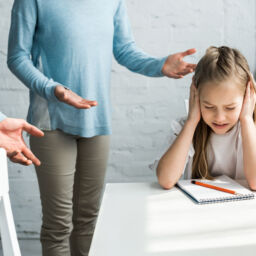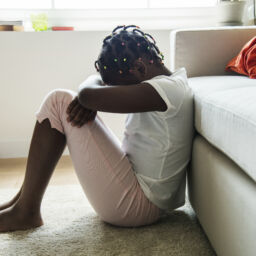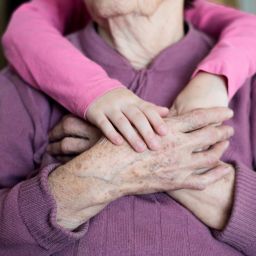- No products in the cart.
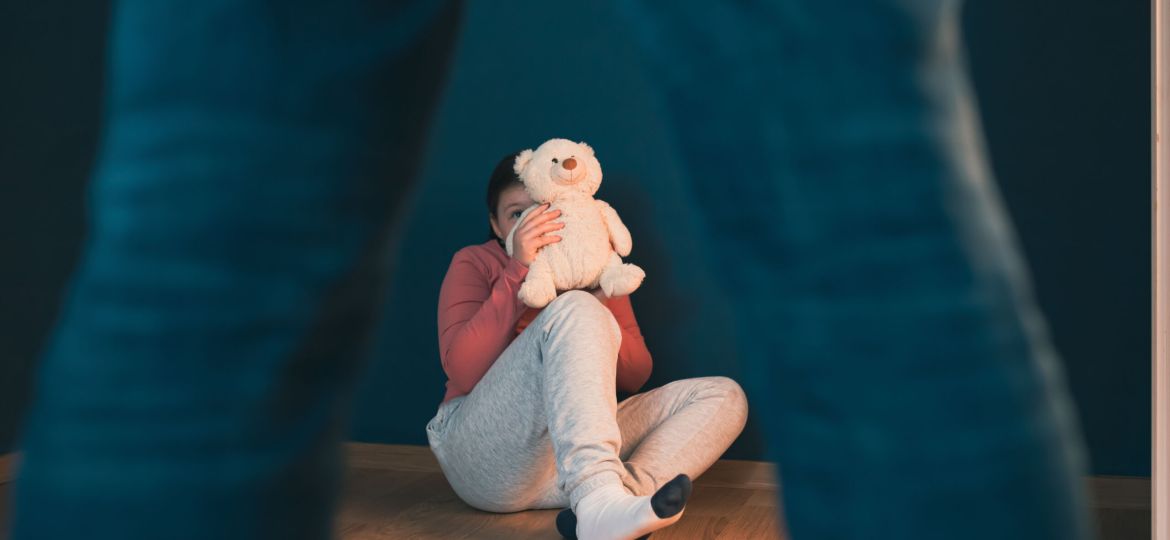
The effects of emotional Abuse On Children: A Lifelong Problem
by- Amanda Hildreth
One of the most common types of Child Abuse is Emotional Abuse, which occurs when a caregiver engages in actions or behavior that have a negative impact on the child’s well-being. While this type of abuse may not produce injuries or scars like Physical Abuse, Emotional Abuse can be just as devastating to a child’s development and lead to lifelong problems.
What Is Child Emotional Abuse?
Child Emotional Abuse may include insulting the child, name-calling, threatening violence, subjecting children to the Emotional Abuse of others, and encouraging the use of drugs and alcohol in children.
Child Emotional Abuse can also include humiliation of the child when they fail at a task, neglecting their needs, or showing indifference to their needs. Child Emotional Abuse can happen in all categories within families, but abuse is more likely to occur in families suffering from financial issues, single parents, families going through a divorce, or families where there is substance abuse happening (Child Crime and Prevention Safety Center, 2022).
There are six types of Emotional Abuse of children (Child Crime and Prevention Safety Center, 2022):
- Rejection: Communicating to children using words and conduct that they are unwanted or worthless.
- Ignoring: Ignoring a child by withholding affection or showing little or no interest in the child and their well-being.
- Threatening: Using threats towards children.
- Isolating: Preventing a child from engaging in activities with friends or keeping them away from human contact.
- Corrupting: Exposing a child to inappropriate things, including drugs, alcohol, criminal behavior, or unwanted sexual conduct.
- Exploiting: Manipulating a child into an activity without considering the child’s development.
Signs Of Emotional Abuse In Children
There aren’t any obvious signs of Emotional Abuse in children, and a child may not tell anyone what is going on. This is why it is crucial to keep an eye on a child’s behavior. As children grow, their emotions change, making it difficult to assess if they are experiencing abuse.
The signs of Emotional Abuse can differ between children of different ages.
Indicators Of Emotional Abuse In Babies And Toddlers
Babies and preschool-aged children who are being emotionally abused may show the following signs (NSPCC, 2023):
- Being overly affectionate with people they don’t know very well
- Seeming anxious or wary
- Not having a close relationship with their parents or caregiver
- Being aggressive toward animals and other children
Older children who are being emotionally abused may show the following signs (NSPCC, 2023):
- Using inappropriate language for their age
- Knowing things you wouldn’t expect them to know at their age
- Struggling to control emotions
- Having extreme outbursts
- Isolated from their parents or caregivers
- Lacking social skills
- Having no friends or only a few
How Emotional Abuse Alters Children’s Brain Structure
As children grow, their brains rapidly develop. Negative experiences such as abuse can cause disruptions in development and lead to changes in the brain. Research also suggests that the timing and duration of Emotional Abuse can affect children later in life (Lippard and Nemeroff, 2019).
Research and studies show apparent differences in nine brain locations between children who experienced Childhood Abuse and those who hadn’t. The most significant changes were in regions that balance emotions and impulses. Children who have been through Emotional Abuse also have a heightened risk of developing mental health problems in their lifetime (Teicher, Anderson, Ohashi, and Polcari, 2013).
Emotional Abuse in children has been known to increase the risk of major depression, anxiety, bipolar disorder, personality disorders, PTSD, and psychosis. Emotional Abuse may also lead to a high risk of substance abuse as a result of brain changes (Teicher, Anderson, Ohashi, and Polcari, 2013).
Effects Of Emotional Abuse On Behavior, Social Function, And Emotions
Due to the fact that Emotional Abuse changes the brain structure of children, it can also affect their behavior, emotional regulation, and social function. Potential effects include:
- Consistently being on alert and unable to relax
- Feeling fearful almost all of the time
- Finding social situations more difficult than others
- Learning problems
- Not meeting developmental milestones
- Increased chance of developing a mental health condition
- An inability to handle positive feedback
These effects can happen into adulthood if they go unaddressed. Adults who experience Emotional Abuse may also have trouble with relationships or may avoid them altogether (Taillieu, Brownridge, Sareen, and Afifi, 2016).
Adults who experienced childhood Emotional Abuse may also have (Taillieu, Brownridge, Sareen, and Afifi, 2016):
- Emotional dysregulation
- Issues with feelings of hopelessness
- Lower self-esteem
- Negative thoughts
- Problems coping with stress
What To Do If A Child Reveals Emotional Abuse
A child experiencing Emotional Abuse may not realize that what is happening to them is wrong or unusual. They may also blame themselves. If a child discloses abuse, it is crucial to (NSPCC, 2023):
- Assure them they have done the right thing by telling you
- Assure them it isn’t their fault
- Listen carefully to what they say
- Let them know that you take what they’ve said seriously
- Explain to the child what you will do next
- Report the abuse as soon as possible
Treatment For Emotional Abuse Of Children
Parents that emotionally abuse their children may have also experienced the same abuse as children. Child treatment for Emotional Abuse is essential for parents and children in these situations.
If Physical or Sexual Abuse is also suspected or the Emotional Abuse is very severe, the safety of the child is crucial. Treatment can begin after the safety of the child is secured. For children who have experienced Emotional Abuse, therapy from a child psychologist helps the child (WebMD,2021):
- To learn how to trust
- By showing healthy behavior and relationships
- Learnhow to manage stressors and conflict
- Boost self-esteem and establish self-worth
We at Abuse Refuge Org (ARO) are here to support you in your individual healing journey toward complete well-being. We bring awareness and education to thirteen different types of abuse and help others heal and find peace. If you would like to learn more and donate to help others find refuge, please visit GoARO.org.
References
Kids and emotional / psychological abuse. Child Crime Prevention & Safety Center. (n.d.). Retrieved February 3, 2023, from https://childsafety.losangelescriminallawyer.pro/kids-and-emotional-psychological-abuse.html#:~:text=Children%20who%20experience%20chronic%20emotional,attachment%20problems%20and%20substance%20abuse.
Nspcc. (n.d.). Emotional abuse. NSPCC. Retrieved February 3, 2023, from ;
Lippard, E. T. C., & Nemeroff , C. B. (2019, September 20). The devastating clinical consequences of child abuse and neglect … The Devastating Clinical Consequences of Child Abuse and Neglect: Increased Disease Vulnerability and Poor Treatment Response in Mood Disorders. Retrieved February 3, 2023, from https://ajp.psychiatryonline.org/doi/10.1176/appi.ajp.2019.19010020
Teicher, M. H., Anderson, C. M., Ohashi, K., & Polcari, A. (2013, October 28). Childhood maltreatment: Altered network centrality of cingulate, precuneus, temporal pole and Insula. Biological Psychiatry. Retrieved February 3, 2023, from ;
Taillieu, T. L., Brownridge, D. A., Sareen, J., & Afifi, T. O. (2016, August 1). Childhood emotional maltreatment and mental disorders: Results from a nationally representative adult sample from the United States. Child Abuse & Neglect. Retrieved February 3, 2023, from ;
WebMD. (n.d.). Emotional abuse: How does it impact children? WebMD. Retrieved February 3, 2023, from https://www.webmd.com/children/what-to-know-about-child-emotional-abuse



